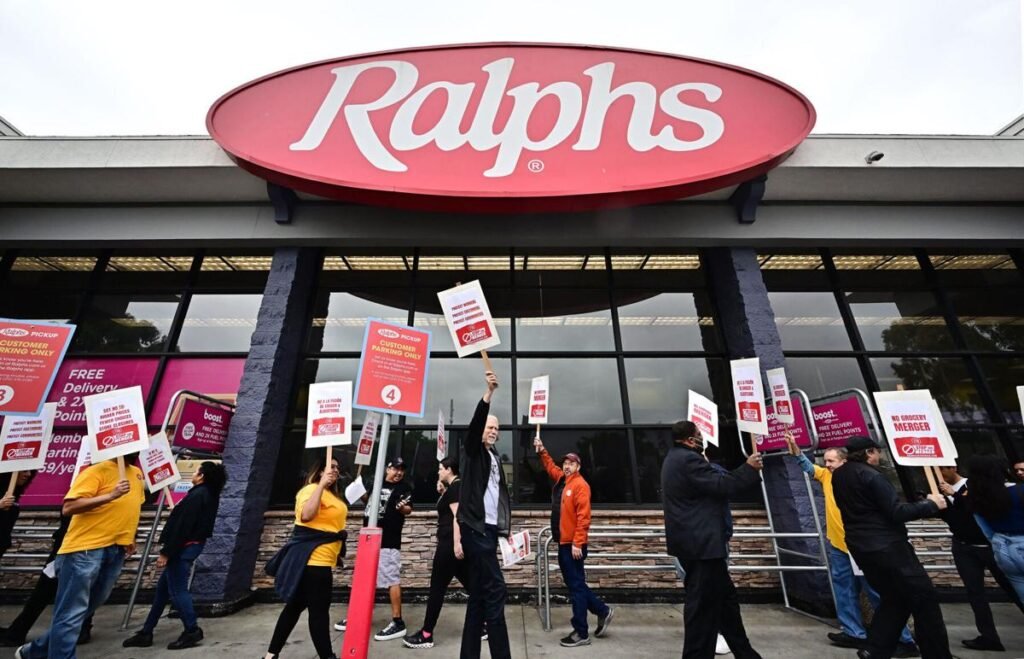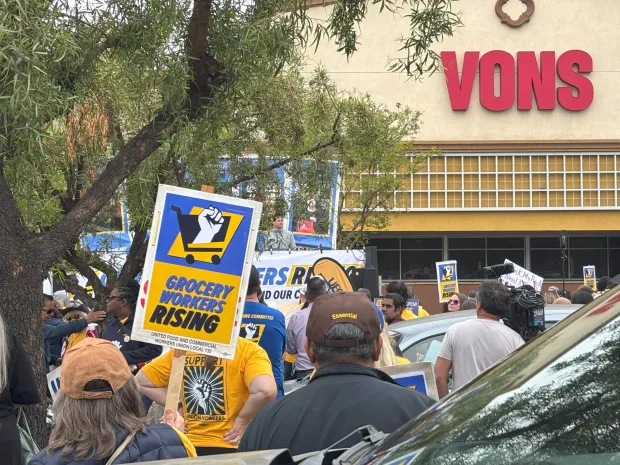Mediator Layoffs Spark Worry in the Grocery Industry
Southern California grocery labor mediator layoffs are shaking up the grocery industry. The Federal Mediation and Conciliation Service (FMCS), once a key player in smoothing out conflicts between grocery workers and employers, has seen sudden staff cuts. The shutdown of its regional presence is leaving thousands of workers, store owners, and union leaders concerned about the future of negotiations.
These changes follow a government effort to cut costs and reduce agencies, but many say it’s a short-sighted decision that puts worker stability and store operations at risk.
What Was FMCS and Why It Mattered
For decades, FMCS helped settle tough labor disputes. Whether it was about fair pay, better work conditions, or benefits, FMCS mediators were trained to find middle ground. Grocery chains like Ralphs, Vons, and Albertsons often worked with FMCS to keep operations running smoothly without protests or strikes.
Southern California—home to a dense network of stores and tens of thousands of grocery workers—relied heavily on FMCS. Their mediators weren’t just middlemen; they were the glue that held together many high-stakes talks between unions and grocery companies.
Workers Feel the Pressure Without a Neutral Party
Without FMCS, workers now face a harder battle. Some ongoing negotiations between grocery companies and labor unions are stuck. Talks that used to be guided by FMCS professionals are now handled directly between the two parties—often leading to misunderstandings, frustration, and breakdowns.
Union representatives say their members feel ignored. Many worry that without a trusted, neutral voice in the room, employers might take advantage of the situation. Workers have already raised concerns about wages falling behind inflation, the need for safer workplaces, and maintaining their health benefits.

Employers Also Caught in a Difficult Spot
While workers are worried, employers are stressed too. Grocery chains depend on peaceful operations and want to avoid strikes or bad publicity. But without FMCS, it’s harder to settle disagreements without tension.
Many employers are trying to work things out directly, but these conversations are less structured, often heated, and sometimes reach a standstill. This can delay contract renewals and even lead to store walkouts if no solution is found.
Some management teams have started hiring private mediators, but this adds extra cost—and not all parties trust these substitutes.
How the Community Is Affected
The impact of these layoffs isn’t limited to grocery stores. Families who shop at these stores might soon feel the effect too. If labor disputes continue to rise, stores may see disruptions. Shelves might go unstocked, wait times may grow, and prices could creep up as operations slow down.
Southern California’s economy, still healing from pandemic-era supply chain issues, could face another round of instability if grocery stores become a battleground.
Additionally, thousands of grocery workers worried about their job security might pull back on spending, which affects other local businesses.

Political Reactions and Public Criticism
The layoffs are part of a broader government push to “streamline operations,” but critics argue that cutting the FMCS is not saving money—it’s creating bigger problems. Labor leaders say the costs of future strikes, shutdowns, and worker unrest will far outweigh the short-term savings.
Several local lawmakers have expressed concern. They are calling for federal reviews and even emergency funding to either bring back FMCS operations or launch a similar public mediation service.
Public petitions and advocacy campaigns are gaining momentum. People are realizing that labor stability affects more than just paychecks—it touches the daily lives of anyone who shops for groceries.
What Happens Next?
As of now, many union talks remain unresolved. Several major grocery chains in California are due for new contracts in the coming months, and the lack of mediation support could delay deals or spark protests.
Union leaders say they’re preparing for tough negotiations and are urging state and federal leaders to act fast. In the meantime, local grocery stores and their staff are left navigating tense situations on their own.
Conclusion
The Southern California grocery labor mediator layoffs are more than just internal cuts—they are a disruption with real consequences. Without the support of professional mediators like those from FMCS, the grocery industry is entering a period of uncertainty. Workers feel exposed, employers feel stuck, and communities could face ripple effects.
Read Next – Walgreens Opioid Settlement: $300 Million Deal Reached Over Crisis






